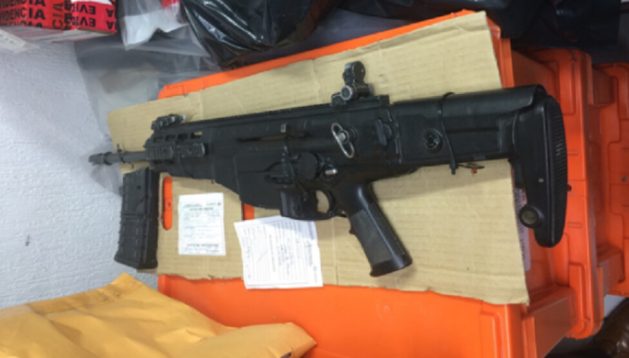MEXICO, Jan 13 (IPS) – The case of a man arrested in Texas, in the south of the United States, for shipping arms parts to Mexico immediately caught the attention of authorities in both countries. But it was only one thread in a web that continues to become more and more tangled.
At a binational meeting in early October, following the inauguration of leftist President Claudia Sheinbaum on 1 October, Mexicans complained to their counterparts about the flow of gun parts through online shops and the United States postal service into Mexico.
The host, the Mexican government, briefed the United States government on the issue and asked for more measures to control the smuggling, including uniform shipping codes to make it easier to identify packages and confiscate them, which Washington has so far rejected.
Sheinbaum herself stressed in her morning conference on Thursday 9 January the importance of cooperation to curb trafficking at customs and borders.
“Just as they are concerned about the entry of drugs into the United States from Mexican territory, we are concerned about the entry of weapons. What we are very interested in is that (with Trump) the entry of weapons stops,” she said.
Mexican drug cartels hire individuals in the United States to ship parts to Mexico, where they assemble the weapons, and people who receive payment in cash or remittances on both sides of the border.
In the Texas case, which broke out in December 2023, the accused sent parts and manuals, and assessed on how to assemble 4,300 rifles in exchange for payment of US$3.5 million.
It is a modality that belongs to the so-called “ghost guns”, which can be manufactured with 3D printers or assembled with parts without serial numbers, making them untraceable.
Eugenio Weigend, an academic at the public University of Michigan, with its campus in Ann-Arbour, Michigan, noted that the manufacture of so-called “miscellaneous weapons”, such as components, is on the rise.
“They are a problem. Traffickers find many ways, it’s a new channel they use, it’s one of several options. It adds another layer to the arms trade and exacerbates the problem” of drug trafficking and violence, he told IPS from Austin, capital of the border state of Texas.
The Gun Control Act of 1968 does not regulate the fragment industry, so minors and people who would not pass a legal background check in the United States can buy them.
In recent years, the production of these components has increased exponentially in the northern nation, with lethal consequences for Mexico.




